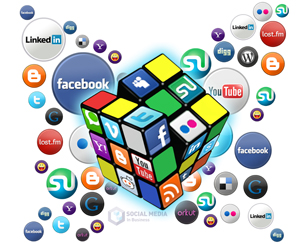 Isn’t technology wonderful? Day-by-day technology is advancing at an absurdly fast rate providing innumerable benefits; everything from medicine, emergency services, simple communication to remote-operated surgical machines, automated response systems that alert in the event of a crisis, newer and safer ways to manufacture prescription drugs, and even exoskeletons and prosthetics controlled naturally from an individual’s nervous system. This rate of progress and revolutionary breakthroughs have become the order of the day in the modern world.
Isn’t technology wonderful? Day-by-day technology is advancing at an absurdly fast rate providing innumerable benefits; everything from medicine, emergency services, simple communication to remote-operated surgical machines, automated response systems that alert in the event of a crisis, newer and safer ways to manufacture prescription drugs, and even exoskeletons and prosthetics controlled naturally from an individual’s nervous system. This rate of progress and revolutionary breakthroughs have become the order of the day in the modern world.
But where there are pros there will always be cons, and technological advancement is no exception.
The main culprit here is Wi-Fi, an invaluable asset which our world simply couldn’t function without, a feature so necessary and useful that it could easily be regarded as the greatest strength of the modern era, as well as its greatest weakness. The amazing convenience and communication abilities that Wi-Fi boasts also means that it must be universal, linking every electronic device that utilizes it into a single network connected to billions of other similar devices, linking all together and leaving a permanent backdoor for any who would exploit it.
 Hacking is hardly a new concept, often regarded as one of those fears that we keep in the back of our subconscious; we fear the catastrophic possibilities of what hackers are capable of but dismiss it as something that has little chance of happening to us personally. Well, that may have been the case a decade ago, but now it’s a whole new ballgame with far more opportunities for one to commit all kinds of cyber-crime against any of their choosing. Everything’s on the same network, meaning that every single device has the same back door and all a hacker would need are the keys.
Hacking is hardly a new concept, often regarded as one of those fears that we keep in the back of our subconscious; we fear the catastrophic possibilities of what hackers are capable of but dismiss it as something that has little chance of happening to us personally. Well, that may have been the case a decade ago, but now it’s a whole new ballgame with far more opportunities for one to commit all kinds of cyber-crime against any of their choosing. Everything’s on the same network, meaning that every single device has the same back door and all a hacker would need are the keys.
If you’re wondering just when and how this became the very real fear it is today, you can thank that miniature computer you carry in your pocket. Smart phones, for all their benefits, are the most vulnerable target to cyber-attacks. Yes, there are dozens of programs designed to protect your electronics from said cyber-attacks, such as antivirus, spyware, malware and general system maintenance, but those only exist for desktops and laptops.
 Mobile devices, such as phones and tablets, enjoy no such protection and are therefore the most vulnerable and exploitative. And think about what you may have on your phone; Twitter, Facebook, your online banking account, all things that can be used to identify you and throw your life into chaos. Oh, and did I mention that a hacker doesn’t even need to bug your phone to do this? Creating or finding an app to access the information on another’s mobile device is far easier than most would like to think, and remember when I said that everything’s on the same network, connected to a device with no real security features? Identity theft, emptying you banking account, collecting information on your friends and family, all with a few pushes on a touch-screen.
Mobile devices, such as phones and tablets, enjoy no such protection and are therefore the most vulnerable and exploitative. And think about what you may have on your phone; Twitter, Facebook, your online banking account, all things that can be used to identify you and throw your life into chaos. Oh, and did I mention that a hacker doesn’t even need to bug your phone to do this? Creating or finding an app to access the information on another’s mobile device is far easier than most would like to think, and remember when I said that everything’s on the same network, connected to a device with no real security features? Identity theft, emptying you banking account, collecting information on your friends and family, all with a few pushes on a touch-screen.
And don’t think you’re safe if you use Apple electronics, because their claim that their devices are immune to viruses is the definition of smoke and mirrors. You really expect that a hacker couldn’t simply adapt their software to crack Apple’s IOS? It may be different but it’s still connected to the same network and it’s all still code; like smart phones, Apple’s tablets and phone have no real security available, based on this smokescreen of a claim.
The real reason why Apple products aren’t a prime target for hackers is simply because of disinterest; cracking Apple’s code is too much of a hassle when there are so many other targets which are much more vulnerable.
 Oh, and it doesn’t stop there; if hacking devices outside your body wasn’t unsettling enough, hacking the devices inside is just as elementary as hacking a phone or tablet. First, the pacemaker; an extremely beneficial medical implant designed to keep your heartbeat in rhythm with small electrical pulses. The huge problem here is that there was effectively no way to know if the device was functioning properly without actually performing surgery on the patient to physically inspect it, which is why medical implants now are made to be virtually accessible via Wi-Fi, providing far less risk to the patient by providing a far easier method to access to assess the condition of the device, as well as collect beneficial medical information. But, once again, it uses the same Wi-Fi that everything else does, meaning a hacker could actually gain control over the device and program it to purposely misfire and cause a heart attack.
Oh, and it doesn’t stop there; if hacking devices outside your body wasn’t unsettling enough, hacking the devices inside is just as elementary as hacking a phone or tablet. First, the pacemaker; an extremely beneficial medical implant designed to keep your heartbeat in rhythm with small electrical pulses. The huge problem here is that there was effectively no way to know if the device was functioning properly without actually performing surgery on the patient to physically inspect it, which is why medical implants now are made to be virtually accessible via Wi-Fi, providing far less risk to the patient by providing a far easier method to access to assess the condition of the device, as well as collect beneficial medical information. But, once again, it uses the same Wi-Fi that everything else does, meaning a hacker could actually gain control over the device and program it to purposely misfire and cause a heart attack.
This was the reasoning behind Dick Cheney purposely deactivating the wireless features of his pacemaker, providing credence to the possibility of such an event. Insulin pumps or other devices are just as vulnerable, as someone could easily hack into the pump’s software and have it dump its entire insulin supply into the body at once, an easily fatal dose without immediate medical attention.
However, hackers tend not to go after these specific devices for the same reason they have little interest in Apple electronics; there are much bigger fish to fry and hackers don’t have much interest in indiscriminately killing people for no gain. An instance of this type of hacking is much more likely for a planned assassination of an individual or acts of terrorism, but the average person would likely be of no interest for a lethal hacking or an act of terrorism since they wouldn’t be able to claim credit for it. And this also applies to all other electronic systems, such as self-driving cars; well what do you think drives the car? Computers, and how does a computer send and receive data, not to mention actually driving the car? Exactly.
 I love technology, particularly the internet since I’m a gamer, but perhaps we may be advancing too quickly, the driving force being, once again, the consumers, who desire more and more tech and manufactures can’t keep up, meaning that new tech is rushed out the door untested and unprotected.
I love technology, particularly the internet since I’m a gamer, but perhaps we may be advancing too quickly, the driving force being, once again, the consumers, who desire more and more tech and manufactures can’t keep up, meaning that new tech is rushed out the door untested and unprotected.
I’m not trying to terrify anyone who may rely on Wi-Fi for whatever reason, I’m just suggesting to be more careful about what you keep on your mobile devices. Anything that could lead to identity theft should be left at home with a desktop\laptop with appropriate security programs. That smart phone whom you believe to be your friend can very quickly turn into your enemy.
